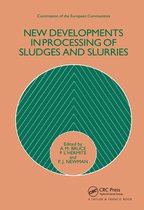The Conversion of Liquid Rocket Fuels, Risk Assessment, Technology and Treatment Options for the Conversion of Abandoned Liquid Ballistic Missile Propellants (Fuels and Oxidizers) in Azerbaijan Proceedings of the NATO Advanced Research Workshop, Held in Baku, Azerbaijan, 29 September-3 October 2003
Afbeeldingen
Sla de afbeeldingen overArtikel vergelijken
Auteur:
W. P. W. Spyra
- Engels
- Paperback
- 9781402023804
- 01 september 2004
- 148 pagina's
Samenvatting
This demilitarization process began shortly after the reunification of Germany and was largely completed by the mid to late 1990’s. Due to a lack of resources and technology, the process of demilitarization in the former Warsaw Pact countries has launched more slowly.
Prof. Dr. -Ing. Wolfgang Spyra Brandenburg University of Technology in Cottbus, Germany The demilitarization and conversion of military properties wor- wide has been a topic of growing importance since the end of the Cold War. The slowing of the arms race brought on by weapons treaties and relaxed tensions between NATO and Warsaw Pact nations caused sto- piles of conventional weapons to become superfluous. The need to process and dispose of such weapons began more quickly in NATO countries. This demilitarization process began shortly after the reunification of Germany and was largely completed by the mid to late 1990’s. The remaining process, no small task in itself, of converting lands formerly used by the military into safe and environmentally acceptable landscapes may continue for decades to come. Due to a lack of resources and technology, the process of demilitarization in the former Warsaw Pact countries has launched more slowly. In 2002 both Georgia and Moldova finished projects which destroyed their stocks of liquid ballistic missile components. Both these projects were carried out through the cooperative support of trans-national organizations, private contractors, and research institutions. The Republic of Azerbaijan now finds itself at the beginning of its demilitarization process. Stored at the country’s military depots are over 2000 tons of missile fuels, oxidizer, and chemical additives. This hazardous waste is kept in tanks intended only for temporary transport and storage.
Prof. Dr. -Ing. Wolfgang Spyra Brandenburg University of Technology in Cottbus, Germany The demilitarization and conversion of military properties wor- wide has been a topic of growing importance since the end of the Cold War. The slowing of the arms race brought on by weapons treaties and relaxed tensions between NATO and Warsaw Pact nations caused sto- piles of conventional weapons to become superfluous. The need to process and dispose of such weapons began more quickly in NATO countries. This demilitarization process began shortly after the reunification of Germany and was largely completed by the mid to late 1990’s. The remaining process, no small task in itself, of converting lands formerly used by the military into safe and environmentally acceptable landscapes may continue for decades to come. Due to a lack of resources and technology, the process of demilitarization in the former Warsaw Pact countries has launched more slowly. In 2002 both Georgia and Moldova finished projects which destroyed their stocks of liquid ballistic missile components. Both these projects were carried out through the cooperative support of trans-national organizations, private contractors, and research institutions. The Republic of Azerbaijan now finds itself at the beginning of its demilitarization process. Stored at the country’s military depots are over 2000 tons of missile fuels, oxidizer, and chemical additives. This hazardous waste is kept in tanks intended only for temporary transport and storage.
Productspecificaties
Wij vonden geen specificaties voor jouw zoekopdracht '{SEARCH}'.
Inhoud
- Taal
- en
- Bindwijze
- Paperback
- Oorspronkelijke releasedatum
- 01 september 2004
- Aantal pagina's
- 148
- Illustraties
- Nee
Betrokkenen
- Hoofdauteur
- W. P. W. Spyra
- Hoofdredacteur
- Wolfgang Spyra
- Tweede Redacteur
- Kay Winkelmann
- Co Redacteur
- Kay Winkelmann
- Hoofduitgeverij
- Springer-Verlag New York Inc.
Overige kenmerken
- Editie
- 2004 ed.
- Extra groot lettertype
- Nee
- Product breedte
- 155 mm
- Product lengte
- 235 mm
- Studieboek
- Nee
- Verpakking breedte
- 155 mm
- Verpakking hoogte
- 235 mm
- Verpakking lengte
- 235 mm
- Verpakkingsgewicht
- 520 g
EAN
- EAN
- 9781402023804
Je vindt dit artikel in
- Categorieën
- Boek, ebook of luisterboek?
- Boek
- Taal
- Engels
- Studieboek of algemeen
- Studieboeken
Kies gewenste uitvoering
Bindwijze
: Paperback
Prijsinformatie en bestellen
Rapporteer dit artikel
Je wilt melding doen van illegale inhoud over dit artikel:
- Ik wil melding doen als klant
- Ik wil melding doen als autoriteit of trusted flagger
- Ik wil melding doen als partner
- Ik wil melding doen als merkhouder
Geen klant, autoriteit, trusted flagger, merkhouder of partner? Gebruik dan onderstaande link om melding te doen.








